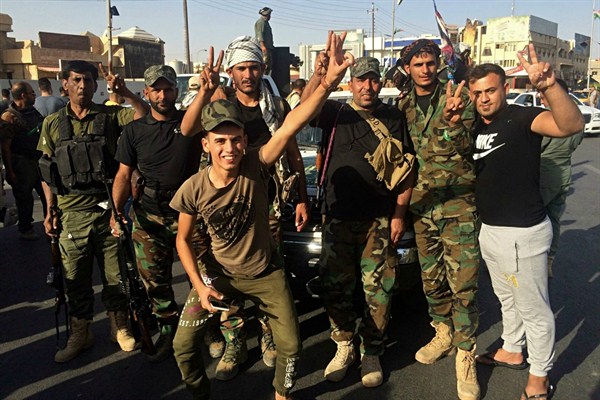Three months after defeating the self-proclaimed Islamic State in the horrific battle for Mosul, Iraqi security forces backed by Shiite militias and Iranian special forces attacked Iraqi Kurds, retaking control of the vital city of Kirkuk and nearby oil fields from the semiautonomous Kurdish Regional Government. While the offensive was sparked by a Kurdish independence referendum three weeks ago, it may signal a new, dangerous phase in Iraq’s interminable internal conflict.
The United States so far has failed to head this off, despite its efforts. Washington opposed the Kurdish independence vote but could not prevent it. Nor could it halt the Iraqi government’s Kirkuk offensive. Baghdad simply scoffed at a U.S. warning that it might stop providing military training and equipment if attacks on the Kurds continued.
Today there are few signs that the United States can forestall further violence in Iraq. This matters greatly. While the conflict between Baghdad and the Kurds says much about the political priorities of the Iraqi government and its Iranian ally, it is also emblematic of a historic erosion of U.S. leverage in the Middle East.

